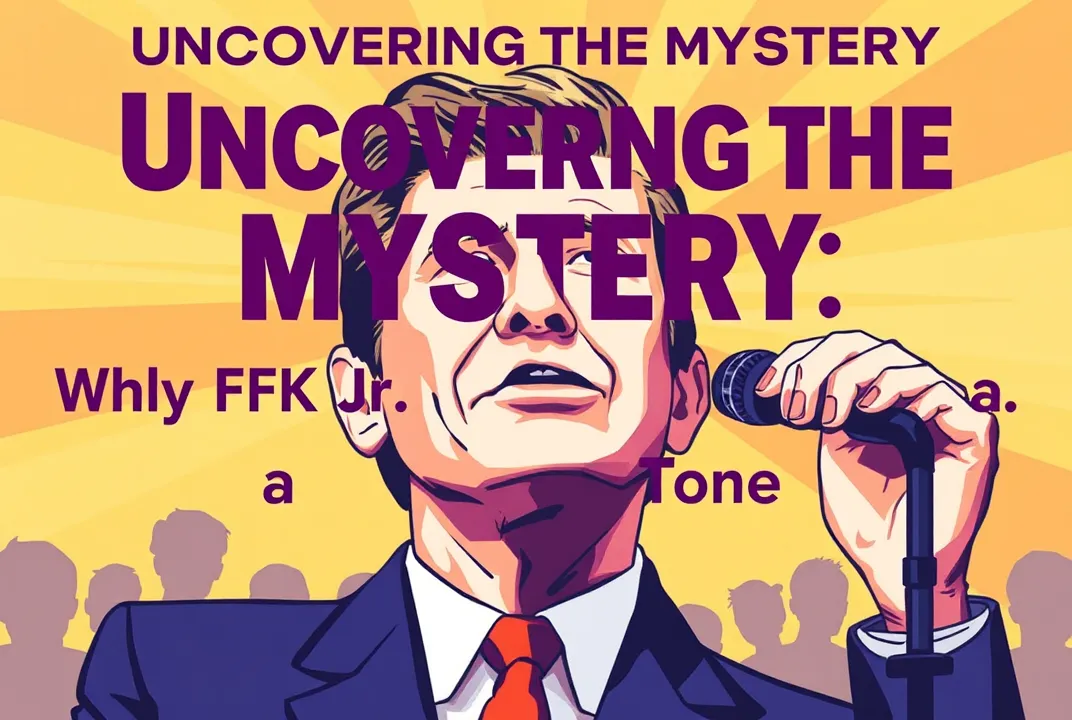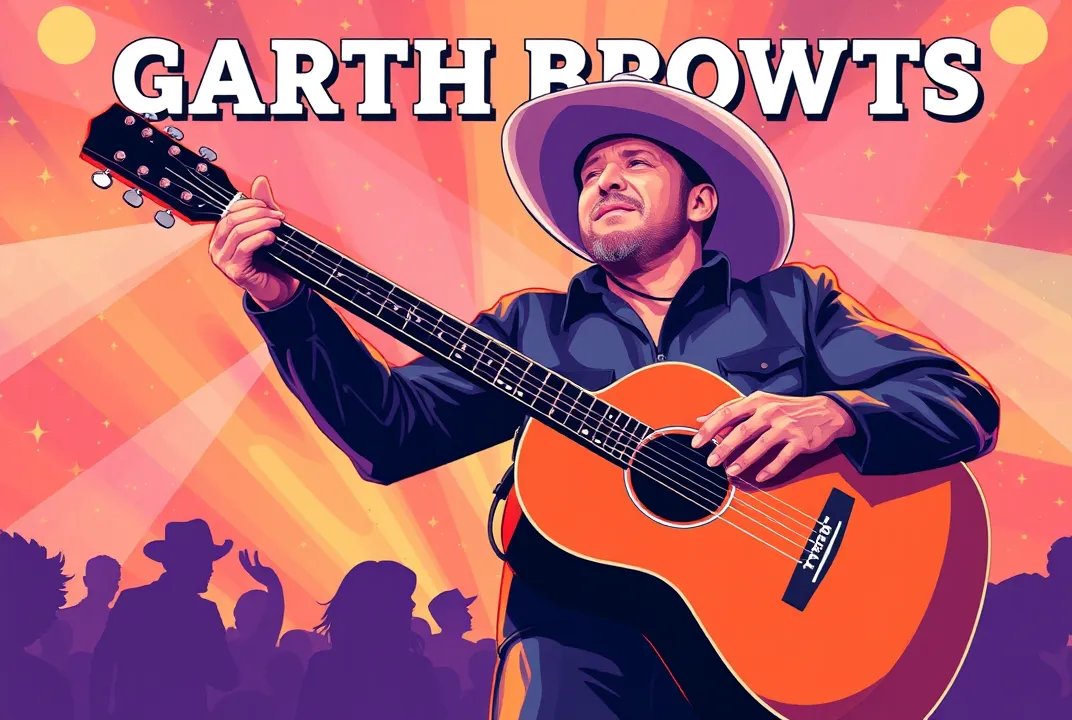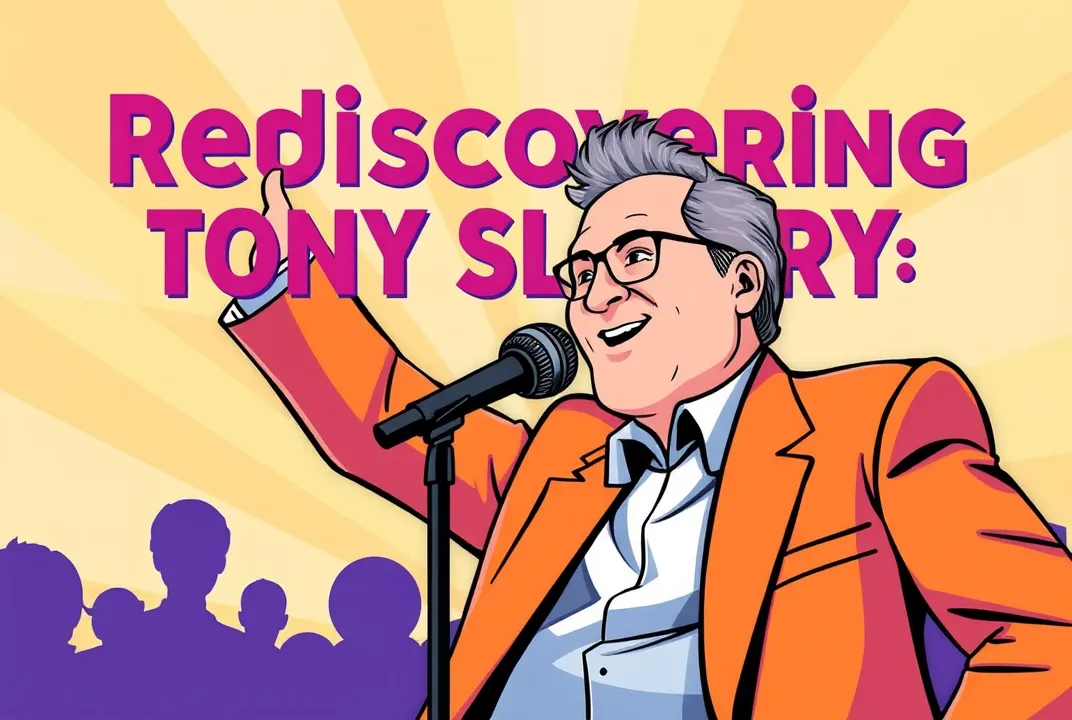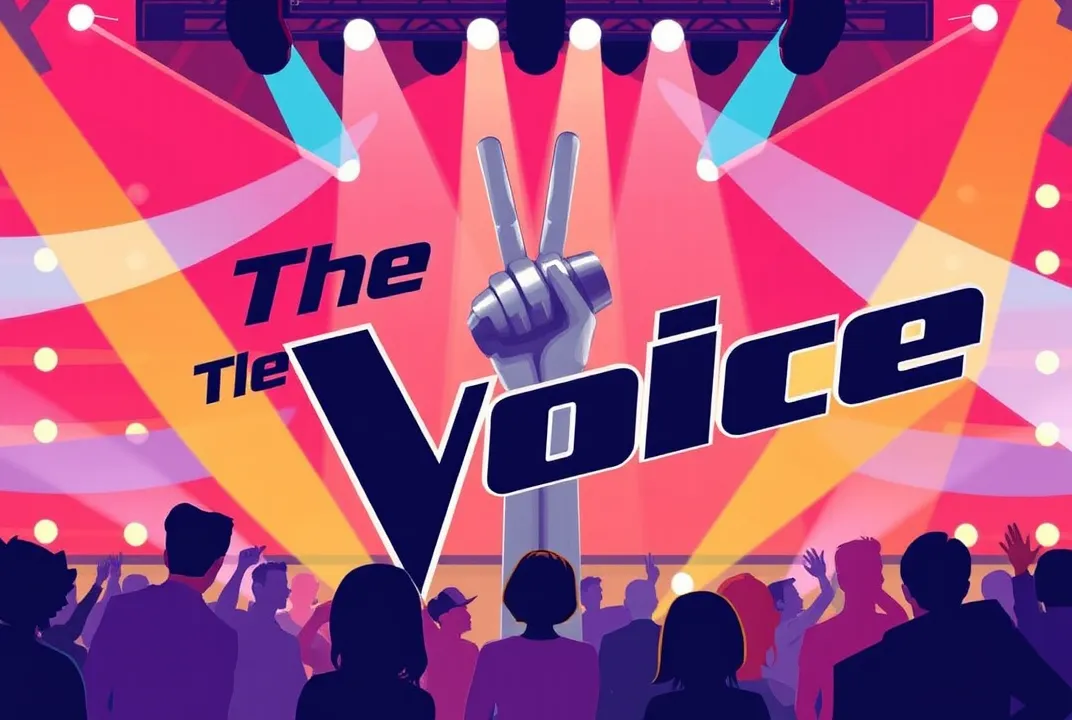Understanding RFK Jr.'s Distinctive Tone: A Dive into His Communication Style
In the midst of a politically charged atmosphere, few figures have captivated and polarized the American public quite like Robert F. Kennedy Jr. (RFK Jr.). Known not just for his lineage but also for his controversial views on vaccine safety, environmental issues, and other political stances, RFK Jr. has carved a unique niche for himself in the contemporary political landscape. However, what often garners as much attention as his views is his distinctive communication style. His tone—often described as passionate yet measured—leaves a lasting impression on listeners. So, what lies beneath the surface of RFK Jr.'s tone? Let's unravel this mystery.
The Power of Legacy in Communication
The Kennedy name carries a weight of history and expectation. The legacy of his father, Robert F. Kennedy, and uncle, President John F. Kennedy, looms large, casting shadows that RFK Jr. has both embraced and attempted to redefine. Growing up in such a prominent family, he was likely exposed to a variety of communication styles, from his father's impassioned speeches to the carefully crafted public personas of his relatives.
Emotional Resonance
RFK Jr. often channels the emotional resonance associated with his family's legacy. His speeches and public statements are infused with a sense of urgency and vulnerability, reminiscent of the oratory style that characterized his father. This emotional appeal can be compelling, drawing in audiences who are not only captivated by his words but also by the history they evoke.
The Influence of Personal Experiences
RFK Jr. has faced significant personal challenges that have shaped his worldview and, consequently, his tone. His journey includes a battle with substance abuse, which he has been open about, and the tragic loss of his son, which has added layers of depth to his public persona. These experiences contribute to a tone that is not merely performative; it is imbued with genuine emotion and authenticity.
Authenticity and Vulnerability
In an age where the political discourse often feels scripted and rehearsed, RFK Jr.'s willingness to share his vulnerabilities sets him apart. His tone strikes a balance between authority and relatability, making him approachable to a segment of the population that feels disenfranchised by conventional politicians. By sharing his personal narrative, he fosters a connection with listeners who may resonate with his struggles and triumphs.
The Role of Controversy
RFK Jr.'s tone is further amplified by the controversies he engages with, particularly regarding vaccinations and environmental issues. His vocal skepticism regarding vaccine safety has sparked heated debates, attracting both staunch supporters and vehement critics. This contentious landscape necessitates a communication style that is both assertive and cautious.
Assertiveness in Advocacy
In advocating for causes he believes in, RFK Jr. employs a tone that is confident and unwavering. His ability to articulate complex issues in a straightforward manner allows him to reach an audience that may not be familiar with the intricacies of scientific debate. He presents himself as a champion for the underrepresented, using his platform to amplify voices that often go unheard.
The Art of Storytelling
Another hallmark of RFK Jr.'s communication style is his adept use of storytelling. Whether he is recounting historical events, sharing personal anecdotes, or discussing environmental crises, he weaves narratives that captivate his audience. This storytelling approach not only engages listeners but also helps to contextualize complex issues, making them more relatable.
Connecting Through Narrative
By framing his messages within compelling narratives, RFK Jr. enhances the emotional weight of his arguments. Listeners are more likely to remember a story than a statistic, and RFK Jr. understands this principle well. His storytelling technique encourages empathy and can sway opinions, making his tone not just a matter of how he speaks, but also what he speaks about.
The Impact of Social Media
In today's digital age, communication extends beyond traditional platforms. RFK Jr. has adeptly utilized social media to amplify his message, engaging directly with followers and creating a community around his views. This platform allows him to adopt a conversational tone, often addressing concerns and questions in real-time, further humanizing his public presence.
Direct Engagement
Social media fosters a sense of immediacy and intimacy that traditional media lacks. RFK Jr.'s engagement with his audience—whether responding to comments or sharing behind-the-scenes glimpses of his life—contributes to a tone that feels personal and accessible. This direct interaction allows him to cultivate a loyal following, as followers feel a sense of connection that transcends the typical politician-electorate relationship.
The Polarization of His Tone
Despite—or perhaps because of—his distinctive communication style, RFK Jr. remains a polarizing figure. Critics argue that his tone can veer into sensationalism, especially regarding vaccine misinformation. His passionate delivery can sometimes overshadow the content of his message, leading to concerns about the impact of his rhetoric.
The Double-Edged Sword of Passion
While passion can be a powerful tool for persuasion, it can also alienate those who disagree with him. This duality creates a complex dynamic where RFK Jr.'s tone is both a strength and a weakness. For supporters, it embodies conviction; for detractors, it can signify extremism. This polarization complicates public discourse and underscores the challenges of navigating sensitive topics in a divided society.
Conclusion: A Tone That Resonates
RFK Jr.'s distinctive tone is a product of his legacy, personal experiences, and the controversies that surround him. Through emotional resonance, authenticity, and masterful storytelling, he captivates audiences while also polarizing them. In an era where communication is essential in politics, RFK Jr.'s tone serves as both a tool for connection and a flashpoint for division.
As we navigate the complexities of political communication, RFK Jr.'s approach invites us to explore the power of tone in shaping public perception. Whether one agrees with his views or not, the significance of how he communicates cannot be overlooked. In the end, RFK Jr. embodies a blend of history, narrative, and advocacy that continues to resonate in the fabric of American political discourse, leaving an indelible mark on those who encounter his words.


 Unveiling Jocelyn Wildenstein: The Enigmatic Life Behind the Tabloid Headlines
Unveiling Jocelyn Wildenstein: The Enigmatic Life Behind the Tabloid Headlines
 Garth Brooks: Unpacking the Magic Behind Country Music's Legendary Performer
Garth Brooks: Unpacking the Magic Behind Country Music's Legendary Performer
 Rediscovering Tony Slattery: From Comedy Legend to Mental Health Advocate
Rediscovering Tony Slattery: From Comedy Legend to Mental Health Advocate
 Discovering Laughter: The Rise of Ken Flores in the Comedy Scene
Discovering Laughter: The Rise of Ken Flores in the Comedy Scene
 Unveiling 'The Voice': Behind the Scenes of America's Beloved Singing Competition
Unveiling 'The Voice': Behind the Scenes of America's Beloved Singing Competition